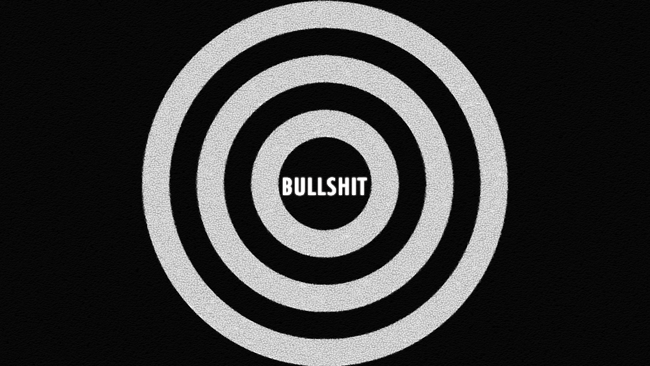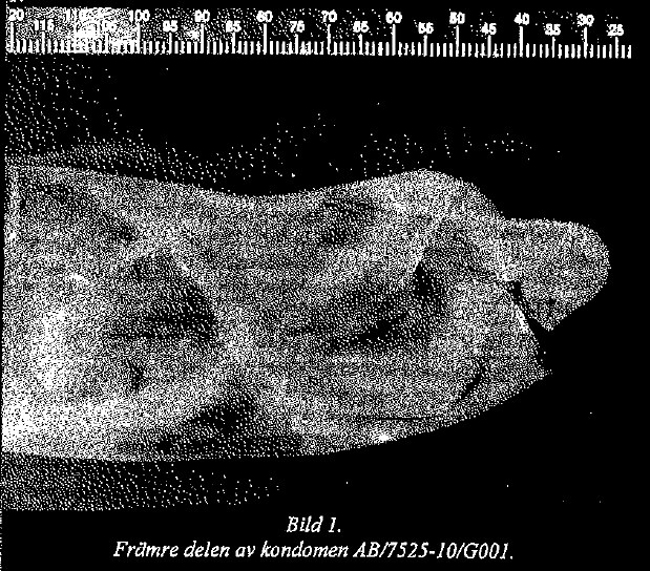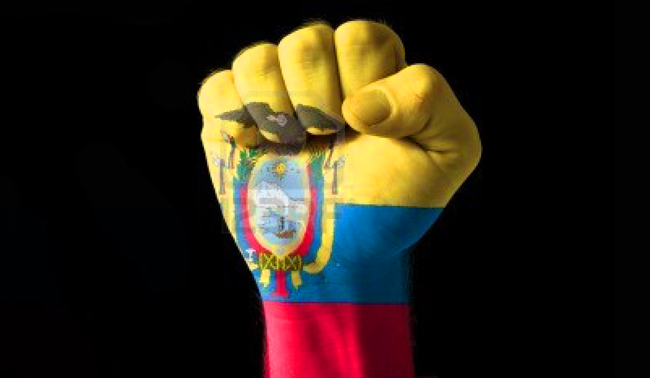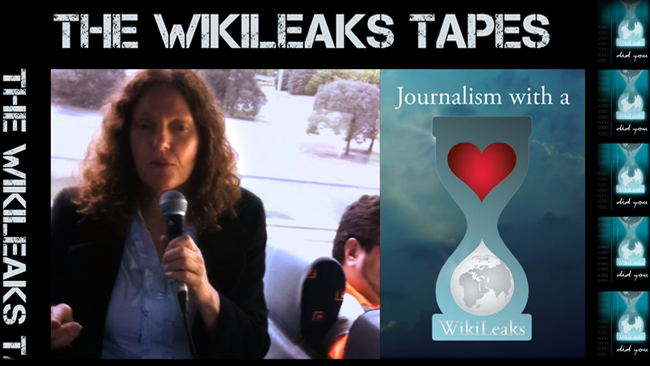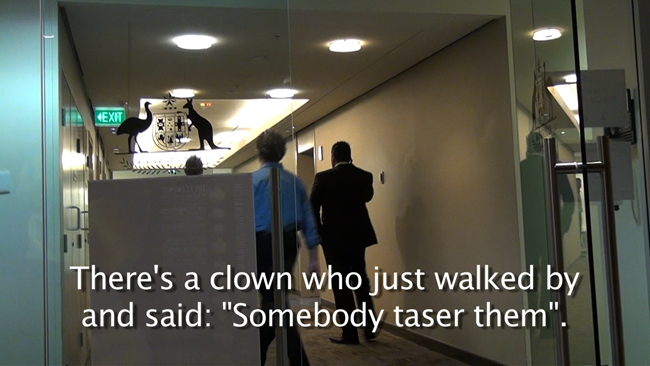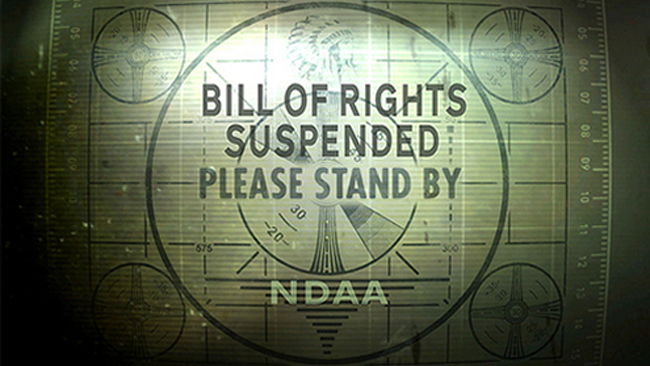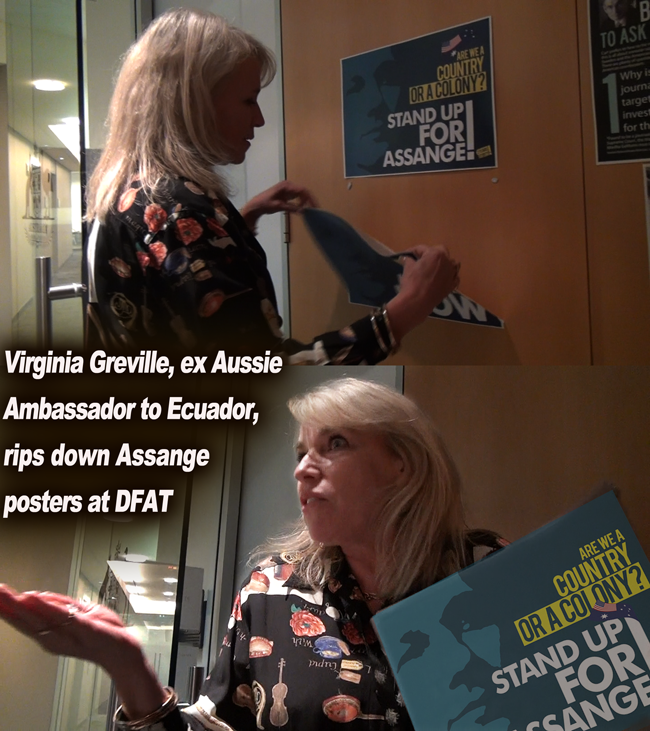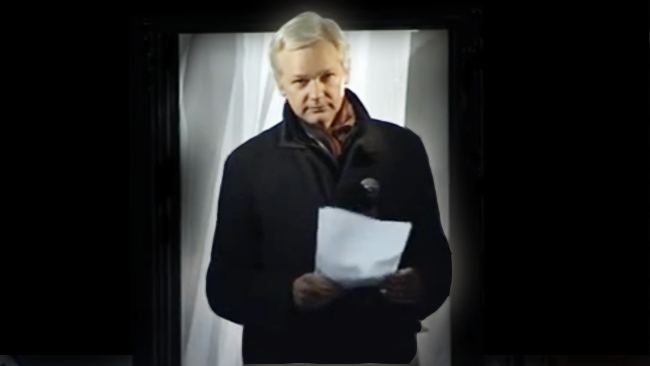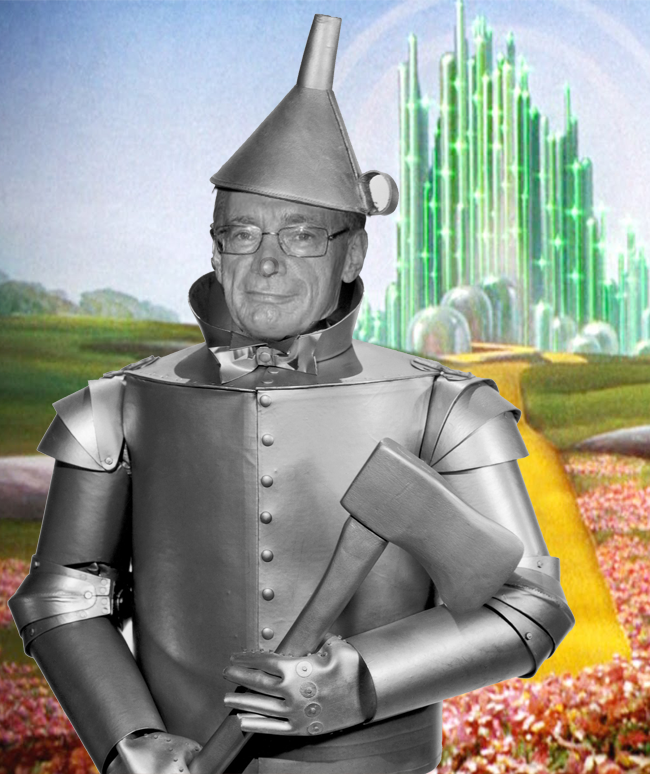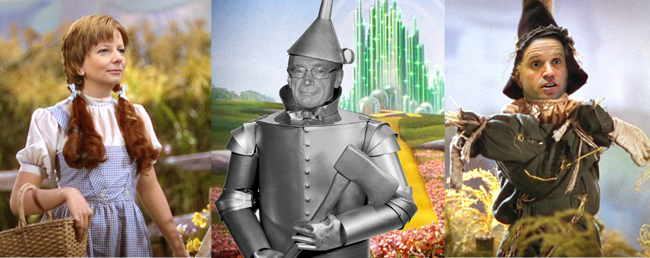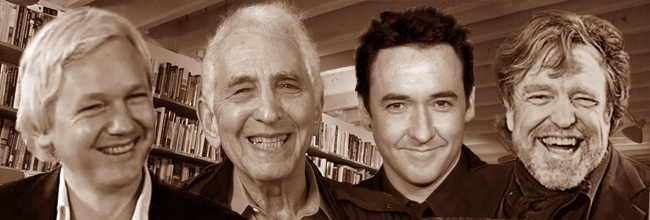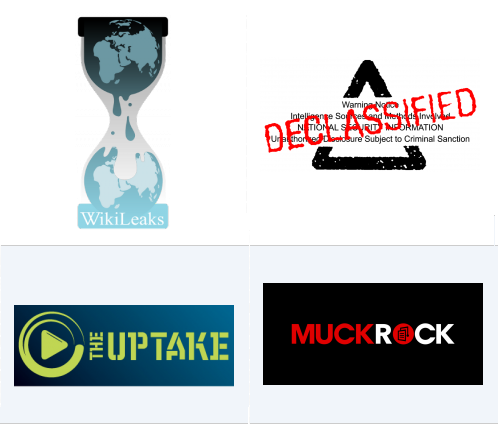The following startling revelations are from the source Rixstep, a constellation of programmers and support staff from Radsoft Laboratories. The article was written by Sergio di Cori Modigliani and reedited by Sandhya Jain., after a Google translation.

Today we talk of geopolitics and the freedom of information. But what is happening today technically (ie politically) began on 12 December 2008, though some say September of that year, but it took four years for the shock waves to reach Europe and America.
The issue relates to Julian Assange, WikiLeaks, and the Republic of Ecuador.
Mind you, it was assumed in the entire American continent, Australia, and Europe that the world was the same as ten years ago. But the world does not work that way anymore.
In Italy, no one was told of the fight growing between Brazil and the United Nations, badly managed by Christine Lagarde who heads the International Monetary Fund, whereby Italy was officially relegated from the eighth largest to the ninth largest economy in the world. It was overtaken by Brazil. So at the next G8, Italy will not be invited, but Brazil will. So we had the decision to abolish the G8 and G10 becoming the new standard.
Europe, with England and Germany at the helm, simply cannot accept the ‘Keynesian’ triumph of South America. In essence the western guideline remains: ‘Let them stay home and remain grateful that we let them survive like the Africans. Otherwise one by one they will all end like Gadaffi.’
This is the warning in a nutshell. So, quietly, South America has in the last 40 days sent three powerful messages; the last and most important was on August 3, and it was televised live from the New York office of the International Monetary Fund. Now for some facts.
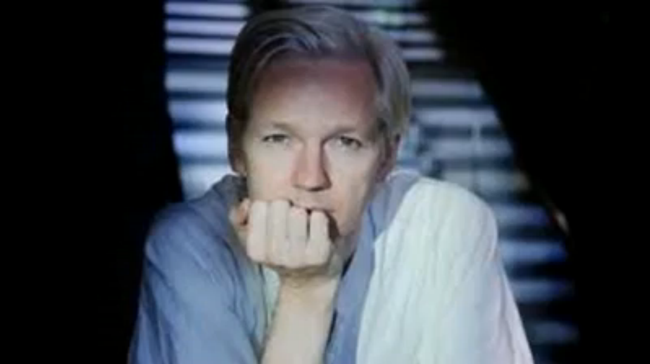
On 15 June 2012, Julian Assange understands that for him it’s over. He knows that he will be arrested in Stockholm, picked up at the airport, not by police forces of His Majesty the King of Sweden, but by two officers of the CIA and a US diplomat, using specific formal agreements between the two nations to claim that Assange ‘actively intervened’ in the NATO conflict in Iraq while the war was in progress. He will then be taken directly to the US, to the state of Texas, and subjected to criminal prosecution for terrorist activities. There will be a demand for the death penalty based on the provisions of the Patriot Act.
So Assange consults with his group, and at 9 a.m. on 19 June, enters the Embassy of Ecuador. His team opens negotiations with British agents in London, with the Swedes in Stockholm, and American diplomats in Rio de Janeiro. They agree to let the Olympics pass, after which he can quietly go to South America, ‘just do not talk about it’. But somehow they don’t trust the Anglo-Americans and rightly so. So they carry out two masterstrokes on 3 August and 4 August.
On 3 August 2012, 16 months ahead of schedule, Argentina President, Cristina Kirchner, arrives at the headquarters of the IMF in Manhattan, accompanied by finance minister and foreign minister of Ecuador, Patino, representing ‘Alba’ (Labour Alianza Bolivariana America), the economic union between Latin America and the Caribbean.
On that occasion, Kirchner hands a cheque of €12 billion to the IMF (whose loan was due on 31 December 2013). She announces that with this instalment, Argentina has shown itself to be solvent, to be a responsible nation, trusted and reliable for anyone who wants to invest money. Argentina in 2003 went in default of $112 billion, but refused to seek cancellation of the debt; it declared bankruptcy and sought 10 years to return the money, including interest.
For 10 years, Argentina fought IMF’s attempts to impose restrictive measures of economic austerity. It opted for a different path, in line with Keynesianism, and based on financing infrastructure, research, innovation, instead of cutting expenditure. And it recovered. And it paid off the last instalment of the IMF loan 16 months in advance. It thus proved once more that the ideas of the IMF and World Bank on economic ideas are noxious and wrong headed. TINA (‘There is no alternative’) is a lie forced upon the majority of the world’s population by the oligarchic elites.
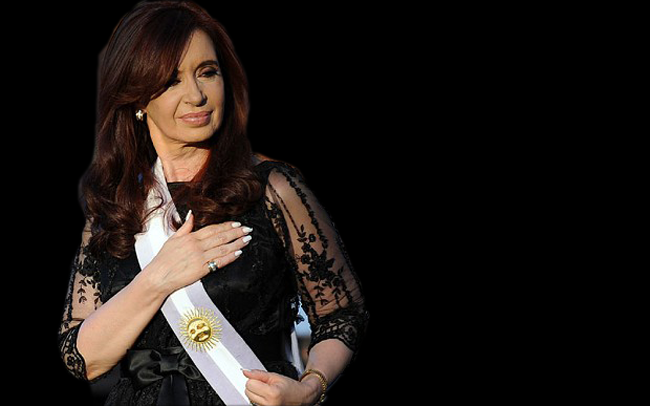
Christina Kirchner, President of Argentina
Fifteen minutes after making the payment, Kirchner lodges a formal complaint against the US and UK to the World Trade Organization, on the basis of files made available by WikiLeaks, that is, Assange.
Argentina, having settled the debts, now wants damages; with compound interest. It’s a fight between Kirchner and Lagarde. Thanks to Assange, as his team has the transcripts of several conversations in different governments of the globe, involving the US, Britain, France, Italy, Germany, the Vatican, where money is the master: Osama Bin Laden has been sent to the attic and replaced as the arch villain by John Maynard Keynes in the minds of the financial hegemons.
Assange has become public enemy number one of the great powers since he has gained the classified records of these long conversations about how to cripple the economies of South America, how to take away their energy resources and prevent their recovery; how to prevent their governments from pushing through Keynesian economic plans instead of applying the dictates of the IMF, whose sole purpose is to pursue a neo-colonialist policy principally for the benefit of Spain, Italy and Germany, with British capital.
Most files have already been published on the Internet. Those and others were handed over by Assange in Britain to the Ecuadorian ambassador there.
On August 3 in New York, Ecuador became the first nation in the Americas and only nation in the Western world since 1948 to apply the concept of ‘immoral debt’ or the political and technical refusal to pay foreign debts because they were made by previous governments through corruption, in violation of constitutional laws and requirements.
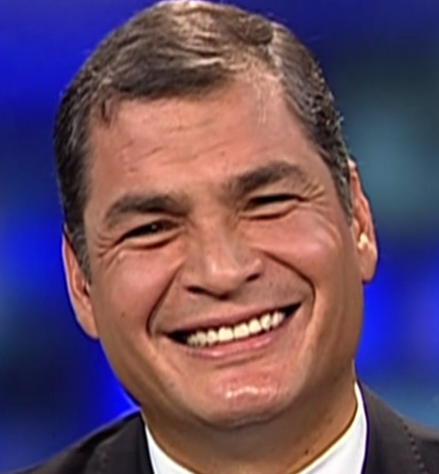
On 12 December 2008, Rafael Correa the new president of Ecuador (whose GDP is around 50 billion euros, or 30 times less than Italy’s) announced on television that he had decided to cancel the national debt considering it illegal, because it violated the constitution to oppress the people. Today in Ecuador, the new constitutional principle is that what is right for the community is legitimate.
Amount of debt: €11 billion. The IMF literally expunged Ecuador from the list of civilized nations. ‘The country is isolated’, declared Dominique Strauss-Kahn, then IMF Director General.
The very next day, Hugo Chavez announced that Venezuela would contribute free oil and gas to Ecuador for ten years. Four hours later, President Lula announced that Brazil would give 100 tons/day of wheat, rice, soy and fruit free to feed the population, for a long as the nation takes to recover. In the evening, Argentina announced it would give 3% of its beef production free to Ecuador to ensure adequate protein for the population. The next morning, in Bolivia, Evo Morales announced the legalization of cocaine for domestic production and collection, and free coca leaves to Ecuador with a loan of 5 billion interest-free, repayable in ten years in 120 instalments.
Two days later, Ecuador denounced the United Fruit Company and Del Monte & Associates for ‘slavery and crimes against humanity’, nationalized the agricultural industry in bananas (Ecuador is the world’s biggest banana exporter) and launched a national organic label.
Ten days later, Bavarian Green of Schleswig Holstein, Conad in Italy, and Denmark, and Haagen Daaz were prepared to sign contracts with the new entity on the basis of ‘fair trade’. On 20 December 2008, taking note of the protest of the United Fruit Company, President George Bush (still in office until 17 Jan 2009), denounced the ‘criminal decision’ of Ecuador and called for its expulsion from the United Nations.
Bush said that the US was even ready for a ‘military option to safeguard US interests’. The next morning, the powerful New York law firm of Goldberg & Goldberg submitted that there was a legal precedent for Ecuador’s action. Six hours later, the US gave up and called on the international community to challenge the legitimacy of the concept of ‘immoral debt’.
The United Fruit Company has a record in systematic political corruption; it was ordered to pay damages of $6 billion.
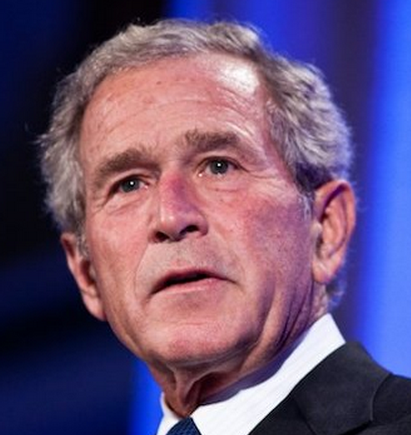
Interestingly, the legal precedent was dated 4th Jan 2003, and signed by George Bush. Yep. This happened in Iraq, which at that time was ‘technically’ an American possession since it was occupied by US forces and the interim government was not yet recognized by the UN. Saddam Hussein had left debts of 250 billion euros (40 billion euros against Italy, thanks to the transactions concluded Tareq Aziz, deputy to Hussein and an ally of Vatican’s Opus Dei), which the US erased by applying the concept of ‘immoral debt’, thus creating the recent historical precedent.
New York lawyers for the government of Ecuador offered Washington a choice: either accept and be silent, or if you challenge the decision of Ecuador then also cancel yours for Iraq and get the US Treasury to immediately pay the €250 billion, including compound interest for four years. Obama, not yet in office but already elected, asks Bush to throw in the towel. The New York lawyers are paid by the Brazilian government.
Rafael Correa, Ecuador’s president-elect, is not a farmer like Morales, or trade unionist like Lula, or a military officer like Chavez, he comes from an upper class family and is an intellectual. He is a graduate in economics and economic planning from Harvard, and self-described as a ‘Christian socialist’. His first official act was to freeze all bank accounts of the Church’s IOR in Quito’s banks and divert the amount into a social welfare program for the economically disadvantaged.
He put on trial the entire political class of the previous government, most of whom were sent to jail, with average sentences of 10 years, confiscated their property and nationalized it and and redistributed it in ecological agricultural cooperatives. Correa sent a letter to Pope Ratzinger in which he called himself ‘always the humble servant of Your Enlightened Holiness’ and in which he officially bade the Vatican send to Ecuador only ‘clerics gifted with deep spirituality and eager to serve the needy, avoiding profiteers who would incur the rigor of human laws’.
Today, the new South America says no to colonialism and slavery of the European and US multinationals. For 400 years, ever since Europeans discovered bananas rich in potassium, Ecuadorians have lived in poverty, exploitation, destitution, while for hundreds of years a group of brutal oligarchs got rich at their expense. It is no longer the case. And it never will be again. The example of Ecuador is alive and can be replicated in any African or Asian, or European, nation in the world.
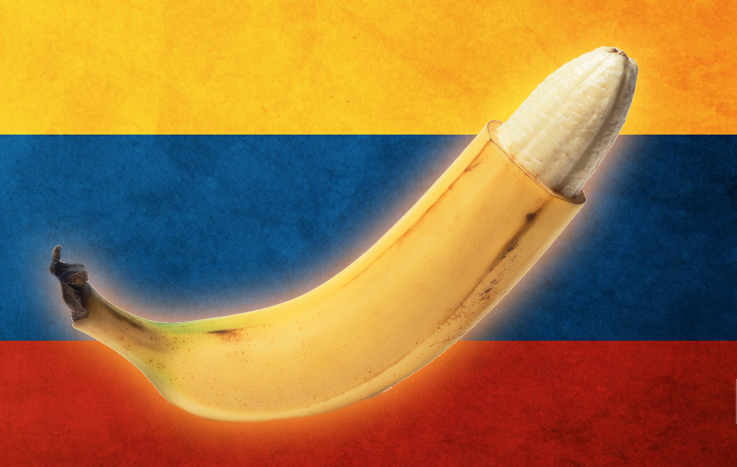
But the decisive blow to the system was a bombshell made public on 4 Aug 2012, when Julian Assange assigned the Spanish judge Garzón, the public enemy number one of organised crime, the most ferocious enemy of Silvio Berlusconi, and absolutely the most dangerous enemy of the global banking system, to defend him.
The Spanish judge has 35 years experience and has been responsible for the prosecution of the most important cases of his country for the past 25 years. He is an expert in ‘media and finance’, and rose to international prominence in 1993 after Interpol issued a warrant on his behalf against Silvio Berlusconi and Fedele Confalonieri (Berlusconi’s right hand man) regarding transactions involving Telecinco, Pentafilm, Fininvest, Reteitalia, and La Cinq.
From this it came out that the Pentafilm (Berlusconi and Cecchi Gori members, namely PD and PDL together) bought at $100 the rights of a film that it sold to Columbia Pictures for $500 to Telecinco that sold them at $1000 to an Italian network which then ultimately sold for $2000 to Rai, and so on a total of 142 times. The same film.
That is, the Rai (or us) paid the rights to a film 20 times the value of the market and bought it three times, so that all parties were taken care of. When it came to the crux of the matter, Berlusconi was prime minister, and so Garzón was stopped by the European Union. He got a half victory. Heclosed the Telecinco and sent its Spanish executives to jail.In 2003 the battle re-opened, with Berlusconi’s new front Mediaset. Garzón was always there.
In 2006, the Italian government at the time (Prodi & co.) helped Berlusconi to escape conviction. In 2004, Garzon opened a dossier against Pope Wojtyla and against the management of the IOR in Spain and Argentina, in relation to funding and support from the Vatican to the military juntas of Pinochet and Videla in South America.
In 2010 Garzón resigned under pressure from the Spanish Government, but before he retired, he opened a law firm dedicated exclusively to international ‘media & finance’ in The Hague, The Netherlands. And now as official legal eagle to Assange, judge Garzón has access to 145,000 files still in possession of Julian Assange that have not been made public. He has already made it known that his office is prepared to denounce several Western heads of state to the court of civil rights in The Hague. The charge will be ‘crimes against humanity, crimes against the dignity of the person’.
The battle is therefore open. It is going to be decisive for the future of freedom in the network [Internet]. In the US, they make no secret of the fact that they want him dead. So do the British. But they are having trouble because Assange has taken steps to bring about a global group that deals with counter-information (real, not the Italian one). Its members are anonymous. They do not have an identified site. They simply enter the data, news, information and events. Besides, who wants to know where to look and who wants to understand? When the temperature rises, everything comes to the surface.
The British Empire has lost its composure and wants to seize Assange who has access to direct source material. And the mere fact of releasing it in public turns the tables on those who rule, and reminds the people that we are caught in an invisible war. The rulers do not know how to stop the dissemination of information about what is happening in the world.
There are people who risk their lives by the mere act of uploading information from some anonymous Internet location in Canberra, Bogota or Saint Tropez. WikiLeaks should not be read as gossip. It is not. Its anonymous team deserves our respect.

We can no longer say tomorrow, ‘but we did not know’. Whoever wants to know today, is well served. Just try.
Translated, this means: until we send home the foul political class that poorly represents us, the chatter will have no effect. Because now we all know how things are. Otherwise, you cannot complain or be surprised that in Italy no one has ever spoken before of Ecuador, Rafael Correa, or of what happens in South America, the furious battle taking place between the Argentine President and Brazil on one hand and Christine Lagarde and Merkel other. Why wonder then, that the British want to invade a foreign embassy? This never happened even in the hottest days of the so-called Cold War. As they say in South America when someone asks ‘What do they do in Europe, what’s happening there’, you answer ‘In Europe they sleep. They do not know that there is life out there.’
See Also
Beat the Blockade
Justice4Assange.com
Assange Defence Fund
WikiLeaks: Support WikiLeaks
The Police Protocol (Translated)
Rixstep: Assange/WikiLeaks RSS Feed
Radsoft: Assange/WikiLeaks RSS Feed





